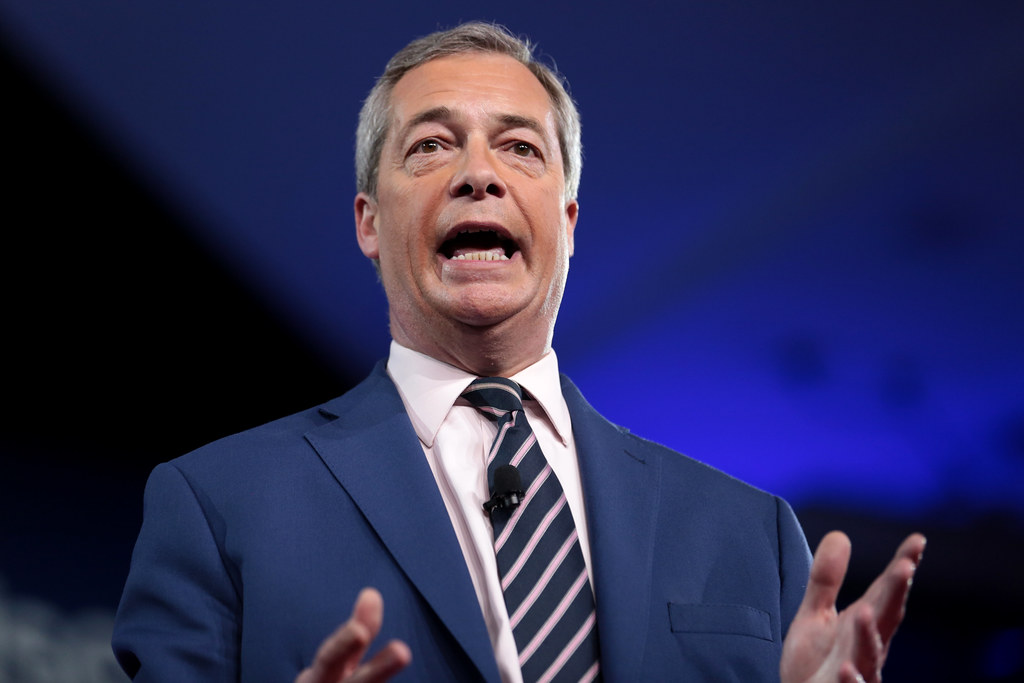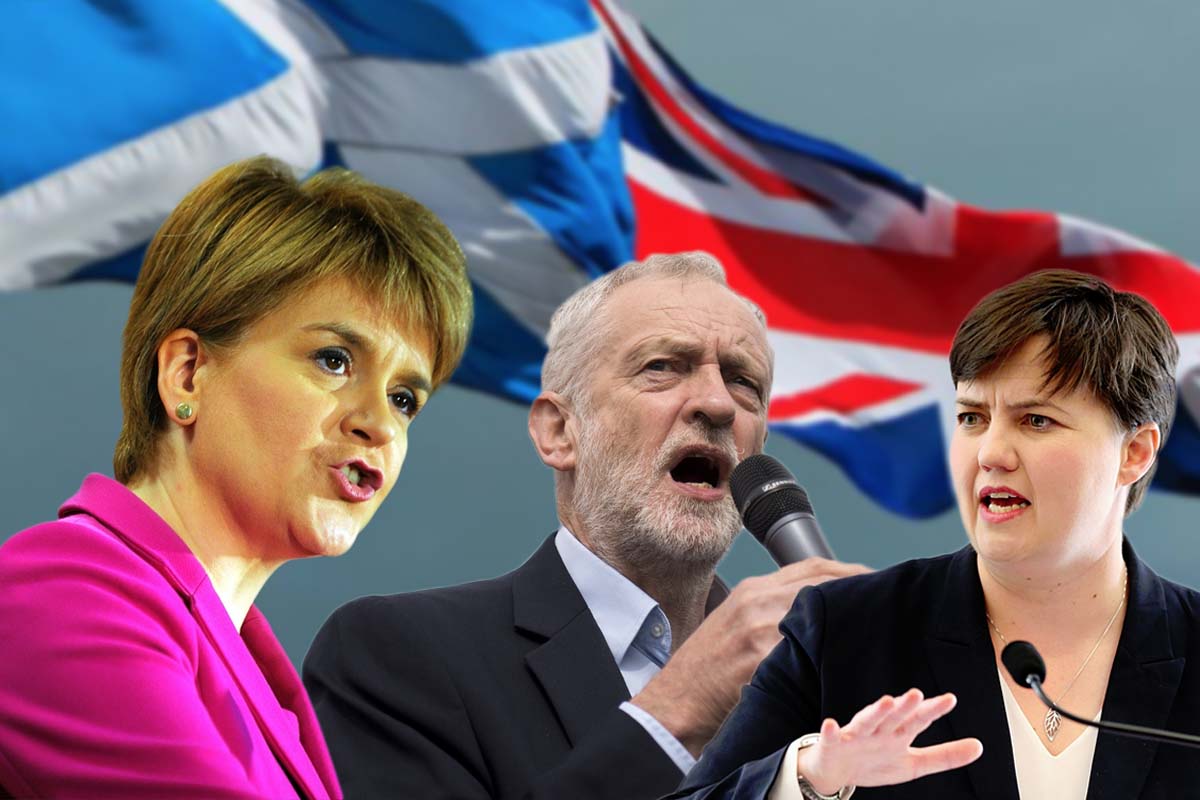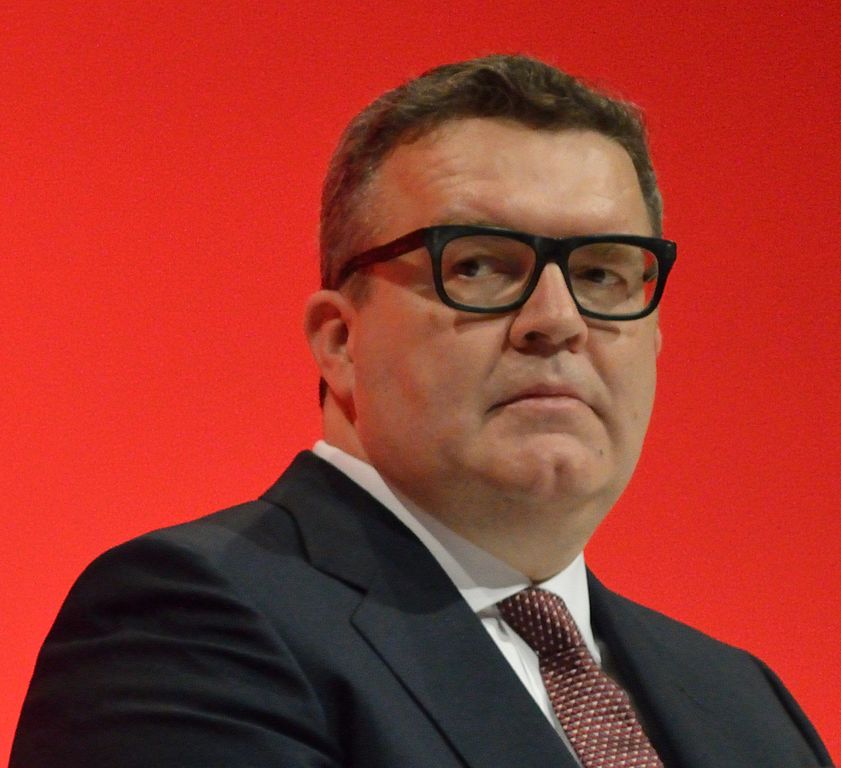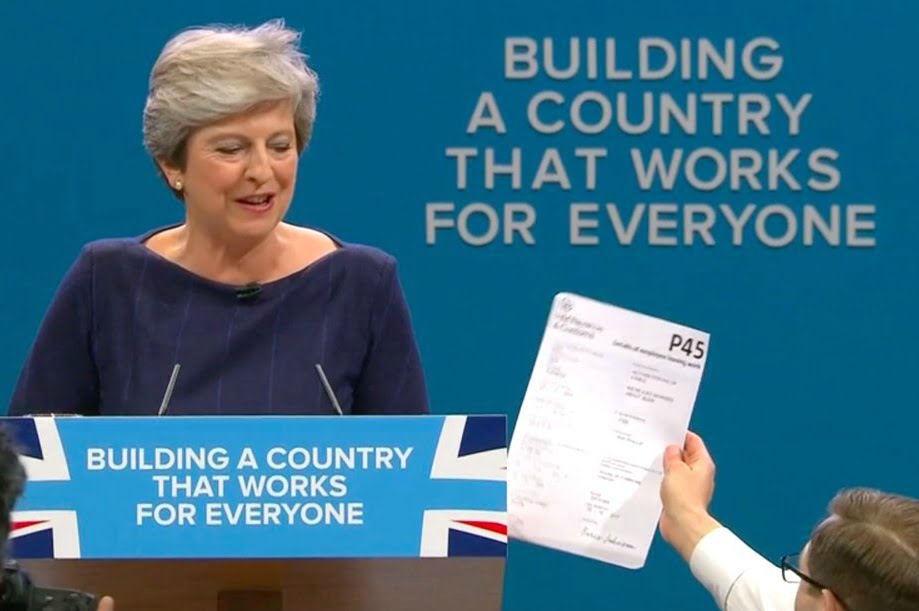Theresa May’s days as Prime Minister are numbered. Conservative MPs are plotting how to rid themselves of their lame duck leader. Whatever the outcome, the Tory meltdown is set to accelerate.
Things are getting desperate, even excruciating. The Tory agony seems to have no end. Theresa May is clinging to office by her finger tips, hoping to last out until the end of October, or maybe even longer. However, the longer she bunkers down, the greater the disaster for the Tory Party.
“The more she hangs on, the angrier colleagues are getting,” said one Eurosceptic Tory MP. “It’s more stubbornness than strategy and it’s going to result in nothing short of an electoral disaster.”
Pressure is mounting on the Tory leader to announce her departure date – preferably one that is ASAP. If she does not step down voluntarily, then Conservative backbenchers could rewrite the rules in order to force her out, such is the strength of feeling against May amongst her own party. But this will only open up a new chapter in the drama (although often pantomime) that is the Tory civil war.
Farage returns
 The failure to deliver Brexit and the paralysis of the government have all contributed to the demise of the Tory Party. The results of the local election were a humiliation for the Tories, losing over 1,300 council seats, their worst result for more than 20 years.
The failure to deliver Brexit and the paralysis of the government have all contributed to the demise of the Tory Party. The results of the local election were a humiliation for the Tories, losing over 1,300 council seats, their worst result for more than 20 years.
The European elections are looking likely to be a complete bloodbath, where the Tories could get less than 10% of the votes.
“BREXIT CHAOS: May NIGHTMARE as Farage set for CRUSHING VICTORY”, stated the Tory Daily Express in response to a poll of its own readers, ominously giving the Brexit Party 86% of the vote. Of course, these “readers” are mostly enraged Tories. This layer will see the European elections as the ultimate opportunity for a protest vote.
However, the Opinium survey for the Observer of how people will vote on 23 May puts the Brexit Party on 34%, with Labour slipping to 21% and the Conservatives collapsing to just 11%. Devastatingly, support for the Tories in the European elections is now less than a third of that for Farage’s party, and below that of the Liberal Democrats, who are on 12%.
Nigel Farage has managed to tap into the general discontent towards the political class and the backlash against a second referendum. Farage, who himself is a disgruntled member of the establishment, is posing as the voice of an anti-establishment party.
“This fight now is about far more than just leaving the European Union,” the Brexit Party founder says. “This is a full-on battle against the establishment.”
In this battle he has recruited the likes of George Galloway and Ann Widdecombe. Galloway, given his Stalinist background, has always had a soft spot for the poison of nationalism, including the monstrous English variety.
Tory split
 Farage’s return was made possible by May’s bungling of Brexit. She originally tilted towards the Brexiteers and the Tory right with her infamous assertion that “no deal is better than a bad deal”. But she failed to gain a majority for her Brexit deal on this basis.
Farage’s return was made possible by May’s bungling of Brexit. She originally tilted towards the Brexiteers and the Tory right with her infamous assertion that “no deal is better than a bad deal”. But she failed to gain a majority for her Brexit deal on this basis.
In despair, Theresa May accepted a six-month delay and then shifted to negotiations with the Labour opposition. But these talks have all but run into the ground. At the same time, these discussions have caused howls of protests from the Tory right. “How can Theresa May negotiate with a Marxist; a threat to national security?” they fume.
There is not a single day that goes by without some leading Tory calling for the Prime Minister’s resignation. The mood is turning ugly, with cabinet ministers lining up to replace her. If she stands aside soon, said one Tory MEP, good; “If not, we are looking at the end of the Conservative party.”
The situation is unprecedented and is preparing the ground for an open split in the Tory Party. A new hard Brexit leader – such as Boris Johnson or Dominic Raab – would end up taking Britain down the road towards a no-deal exit, a general election, or both.
This would precipitate a split. A section will move towards some kind of so-called ‘centre’ party, possibly in combination with the Liberal Democrats and the Blairites in Change UK.
The majority of the Tory Party, however, in competition with Farage and his Brexit Party, will shift further and further to the right. It will suck up all the reactionary elements in society, wrapping itself in the Union Jack and the rags of English nationalism. The wreckage could later fuse with Farage and co., becoming an extreme right-wing monarchist outfit.
Realignment
 This is only part of the realignment of British politics. There will also be a realignment on the left.
This is only part of the realignment of British politics. There will also be a realignment on the left.
The Labour Party under Corbyn has shifted to the left. Whatever the results of the European elections, Britain is facing the prospect of a new general election, in which Corbyn is the favourite to win.
“The Tory Party is currently suffering the kind of damage that will render it unelectable for a generation. That can mean only one thing. Jeremy Corbyn is highly likely to become prime minister in the next few years,” explained the Independent recently (20/4/19).
Farage will try in a demagogic fashion to undercut Labour. But his antics will hurt the Tories far more. The way for Corbyn to undermine Farage is for Labour to fight on a bold socialist programme – for a “revolution against the billionaire class”, in the words of Bernie Sanders during his 2016 Democratic primary campaign.
Scotland
 Whether the outcome of the next general election will be a minority or majority Labour government is hard to tell. In Scotland, Labour has haemorrhaged support to the SNP. The latest YouGov poll puts the SNP on 40%, Labour on 14%, and the Tories on 10%.
Whether the outcome of the next general election will be a minority or majority Labour government is hard to tell. In Scotland, Labour has haemorrhaged support to the SNP. The latest YouGov poll puts the SNP on 40%, Labour on 14%, and the Tories on 10%.
The reason for this is Labour’s damaging attitude to the national question in Scotland. In the 2014 independence referendum campaign, Labour scandalously crept into bed with the Tories and Liberal Democrats – the parties of the establishment – in opposing independence. This repelled the Scottish working class.
Today, shamefully, Labour is against any second independence referendum, which is a democratic right. Labour must instead come out for an independent socialist Scotland, as part of a Socialist Federation of the British Isles. Anything less will only play into the hands of the Scottish nationalists.
Having said that, the likelihood is that the SNP will be forced to back a Corbyn-led Labour government in Westminster, rather than allow the Tories to remain in power.
For a socialist Europe
 Corbyn has correctly attempted to unite workers and youth across the Leave-Remain divide. In order to do this, Labour should explain that – on a capitalist basis – being inside or outside of the EU will make no real difference to workers. It is the choice between being in austerity Britain or austerity Europe.
Corbyn has correctly attempted to unite workers and youth across the Leave-Remain divide. In order to do this, Labour should explain that – on a capitalist basis – being inside or outside of the EU will make no real difference to workers. It is the choice between being in austerity Britain or austerity Europe.
The only solution is a bold socialist programme to put an end to the rule of big business in Britain, and to make a socialist appeal to the workers of Europe to join us in transforming society.
In any case, the attempt by a left Labour government to introduce socialist policies in the UK would immediately come up against the ruthless opposition of the EU, as was seen in Greece in 2015 when Syriza came to power. The EU is no friend of the working class. Its whole raison d’être is to serve the interests of European capitalism.
Trojan horse
 A Corbyn Labour administration will be the most left-wing government for generations. It is this that terrifies the ruling class, who will do everything in their power to undermine such a government. Already, there are increasing reports of the super-rich and big business investors taking major steps to protect their wealth from the prospect of a Corbyn government.
A Corbyn Labour administration will be the most left-wing government for generations. It is this that terrifies the ruling class, who will do everything in their power to undermine such a government. Already, there are increasing reports of the super-rich and big business investors taking major steps to protect their wealth from the prospect of a Corbyn government.
Above all, the ruling class will rely on the Blairites in the PLP to come to their aid. These agents of capitalism in the Labour Party are nothing more than an anti-Corbyn Trojan horse. When the time comes, they will emerge out into the open and attempt to bring down a Labour government from the inside.
To combat this threat, the Labour leadership should immediately introduce the mandatory reselection of all Labour MPs, to allow local parties to democratically decide who should represent them in Parliament. In this way, we can have a PLP that is fully representative of Labour members. This is a basic democratic right – allowing grassroots members to hold their representatives to account.
This struggle must go hand-in-hand with bringing back Clause 4, Labour’s original commitment to the socialist transformation of society. All attempts to patch up capitalism in the past have led to disaster. We must learn the lessons from history.
If a Labour government is going to control and plan the economy, it needs to nationalise the “commanding heights” of the economy – the banks and giant monopolies. Otherwise, the government will not control the economy; rather, the economy will control the government. The City of London will bend the government to its will.
Revolution
 Capitalism is in deep crisis. It can no longer afford reforms, only counter-reforms. It has ushered in an epoch of austerity and falling living standards. No amount of tinkering will alter this fact.
Capitalism is in deep crisis. It can no longer afford reforms, only counter-reforms. It has ushered in an epoch of austerity and falling living standards. No amount of tinkering will alter this fact.
What is required, to quote the words of John McDonnell, is a “revolution”. Asked whether Labour’s plans represented evolution or revolution he said: “OK, it will be a revolution. Transformative – because we are going to change society and that’s what’s demanded of us now.”
We couldn’t agree more. The task that lies before us is to drive out this discredited government, fight for a socialist Labour government, and turn words into deeds.






